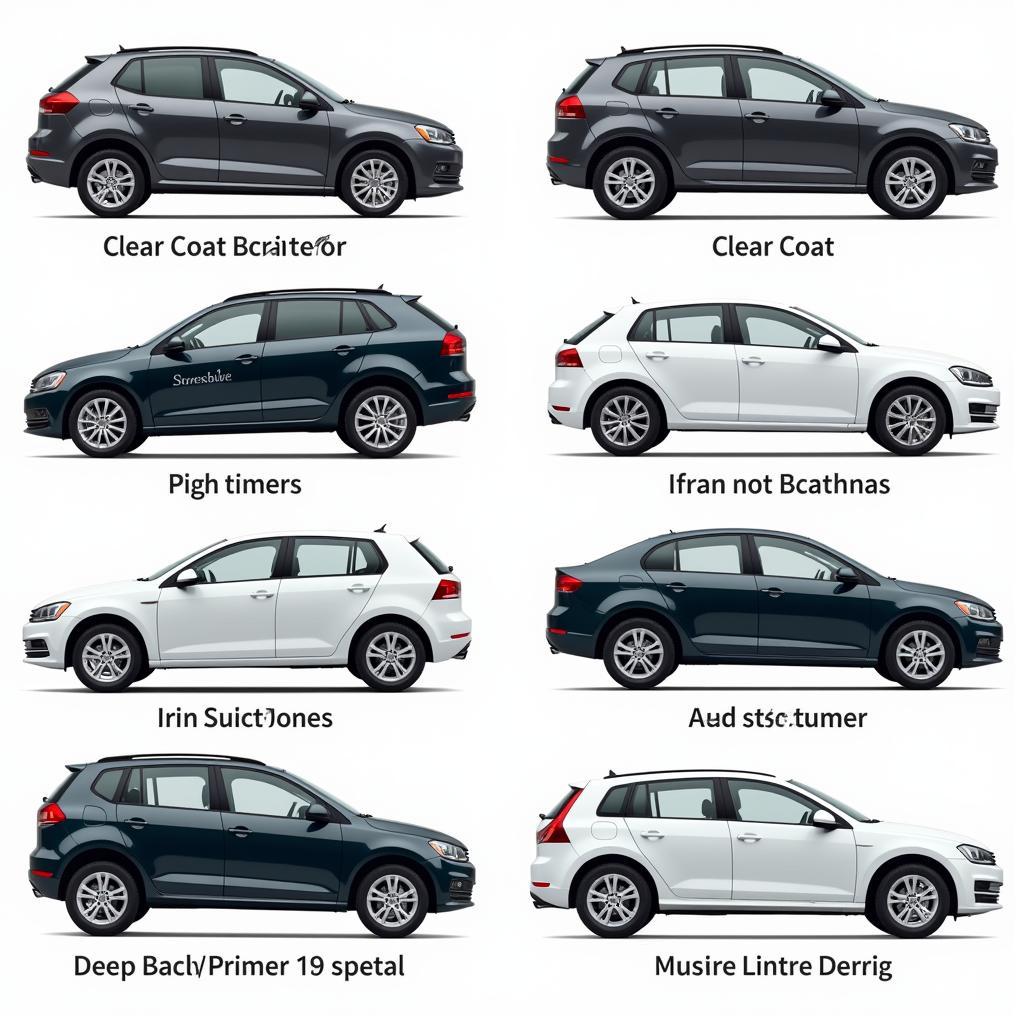Keeping your car running smoothly at 120,000 miles requires diligent car maintenance. At this milestone, several components are nearing the end of their lifespan and require attention. This guide will provide you with a comprehensive understanding of the essential maintenance tasks to perform at this mileage, helping you extend the life of your vehicle and avoid costly repairs down the road.
Essential Car Maintenance at 120,000 Miles
Reaching 120,000 miles is a significant achievement for your car. It signifies years of reliable service, but also highlights the need for proactive maintenance. By understanding the key areas to focus on, you can ensure your vehicle continues to perform optimally. Just like with the truth about car maintenance, preventative measures are key.
Timing Belt Replacement
The timing belt is a crucial component that synchronizes the engine’s valves and pistons. Failure can result in catastrophic engine damage. Most manufacturers recommend replacing the timing belt between 60,000 and 105,000 miles, so if you haven’t already done so, 120,000 miles is a critical point to address this.
- Signs of a worn timing belt: Squealing noises from the engine, difficulty starting, or engine misfires.
- Consequences of neglecting timing belt replacement: Bent valves, damaged pistons, and potentially a completely destroyed engine.
Spark Plug Replacement
Spark plugs ignite the air-fuel mixture in the engine cylinders. Worn spark plugs can reduce fuel efficiency, decrease engine performance, and lead to difficulty starting. Replacing them at 120,000 miles is a good practice, especially if they haven’t been changed recently.
- Symptoms of worn spark plugs: Rough idling, reduced acceleration, and decreased fuel economy.
- Benefits of new spark plugs: Improved fuel efficiency, smoother engine performance, and easier starting.
Fluid Changes: Beyond the Basics
Regular fluid changes are vital throughout your car’s life. At 120,000 miles, consider these essential fluid changes:
- Transmission fluid: This fluid lubricates and cools the transmission. Old transmission fluid can lead to shifting problems and eventual transmission failure. Check your owner’s manual for specific recommendations for your make and model.
- Differential fluid: This fluid lubricates the gears in the differential. Replacing it helps prevent wear and tear and ensures smooth operation.
- Coolant flush: A coolant flush removes rust and deposits from the cooling system, protecting the engine from overheating.
Similar to a car maintenance checklis, this guide provides essential steps for ensuring your car’s longevity.
Suspension Inspection
At 120,000 miles, your car’s suspension components, such as shocks, struts, and bushings, might be showing signs of wear. A thorough inspection is recommended.
- Signs of worn suspension: Uneven tire wear, a bouncy ride, and noises when driving over bumps.
- Importance of a healthy suspension: Ensures a smooth and safe ride, and maintains proper tire contact with the road.
This is particularly important, just as maintaining the correct vergae car maintenance cost for chrylser pacifica 2005 is vital for that specific model.
Brakes Inspection
Your brakes are vital for safety. At 120,000 miles, have your brake pads, rotors, and calipers inspected.
- Signs of worn brakes: Squealing or grinding noises, pulsating brake pedal, and reduced braking performance.
- Consequences of neglecting brake maintenance: Reduced stopping power, potentially leading to accidents.
Understanding your honda civic car maintenance average cist can help prepare you for these essential checks.
Other Important Checks at 120,000 Miles
Beyond the key components mentioned above, it’s essential to check the following:
- Battery: Test the battery’s health and replace it if necessary.
- Tires: Inspect tires for wear and tear and ensure proper inflation.
- Air filter: Replace a dirty air filter to maintain optimal engine performance.
- Fuel filter: A clogged fuel filter can reduce fuel efficiency and engine power.
- Drive belts: Inspect drive belts for cracks and wear.
Understanding car maintenance guidelines is crucial for maintaining your car’s health.
Conclusion
Car maintenance at 120,000 miles is crucial for prolonging the life of your vehicle and avoiding costly repairs. By addressing these key areas, you can keep your car running smoothly and safely for many more miles. For further assistance or personalized advice, feel free to connect with us at AutoTipPro. Our phone number is +1 (641) 206-8880 and our office is located at 500 N St Mary’s St, San Antonio, TX 78205, United States.





Leave a Reply